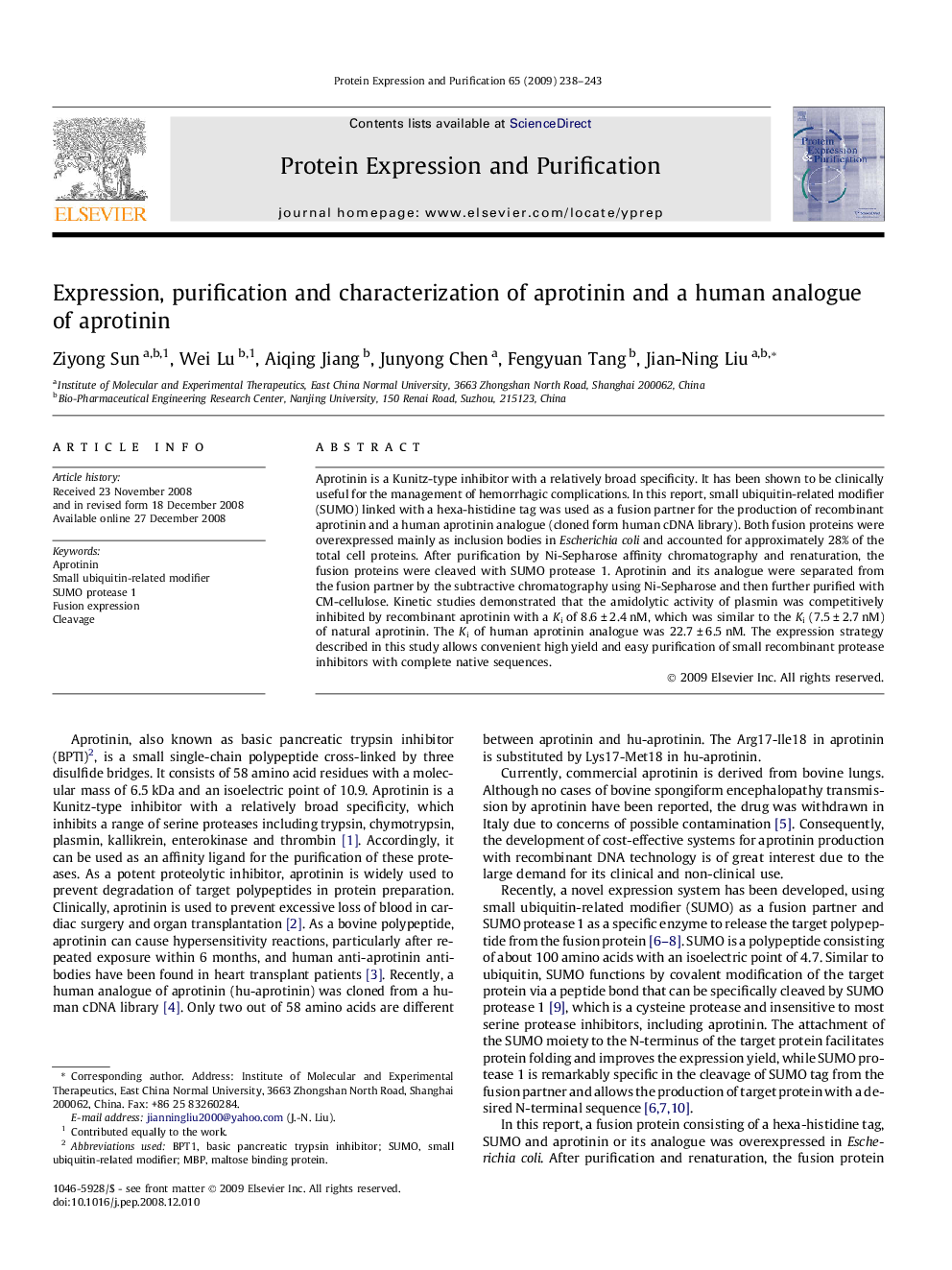| Article ID | Journal | Published Year | Pages | File Type |
|---|---|---|---|---|
| 2021237 | Protein Expression and Purification | 2009 | 6 Pages |
Aprotinin is a Kunitz-type inhibitor with a relatively broad specificity. It has been shown to be clinically useful for the management of hemorrhagic complications. In this report, small ubiquitin-related modifier (SUMO) linked with a hexa-histidine tag was used as a fusion partner for the production of recombinant aprotinin and a human aprotinin analogue (cloned form human cDNA library). Both fusion proteins were overexpressed mainly as inclusion bodies in Escherichia coli and accounted for approximately 28% of the total cell proteins. After purification by Ni-Sepharose affinity chromatography and renaturation, the fusion proteins were cleaved with SUMO protease 1. Aprotinin and its analogue were separated from the fusion partner by the subtractive chromatography using Ni-Sepharose and then further purified with CM-cellulose. Kinetic studies demonstrated that the amidolytic activity of plasmin was competitively inhibited by recombinant aprotinin with a Ki of 8.6 ± 2.4 nM, which was similar to the Ki (7.5 ± 2.7 nM) of natural aprotinin. The Ki of human aprotinin analogue was 22.7 ± 6.5 nM. The expression strategy described in this study allows convenient high yield and easy purification of small recombinant protease inhibitors with complete native sequences.
